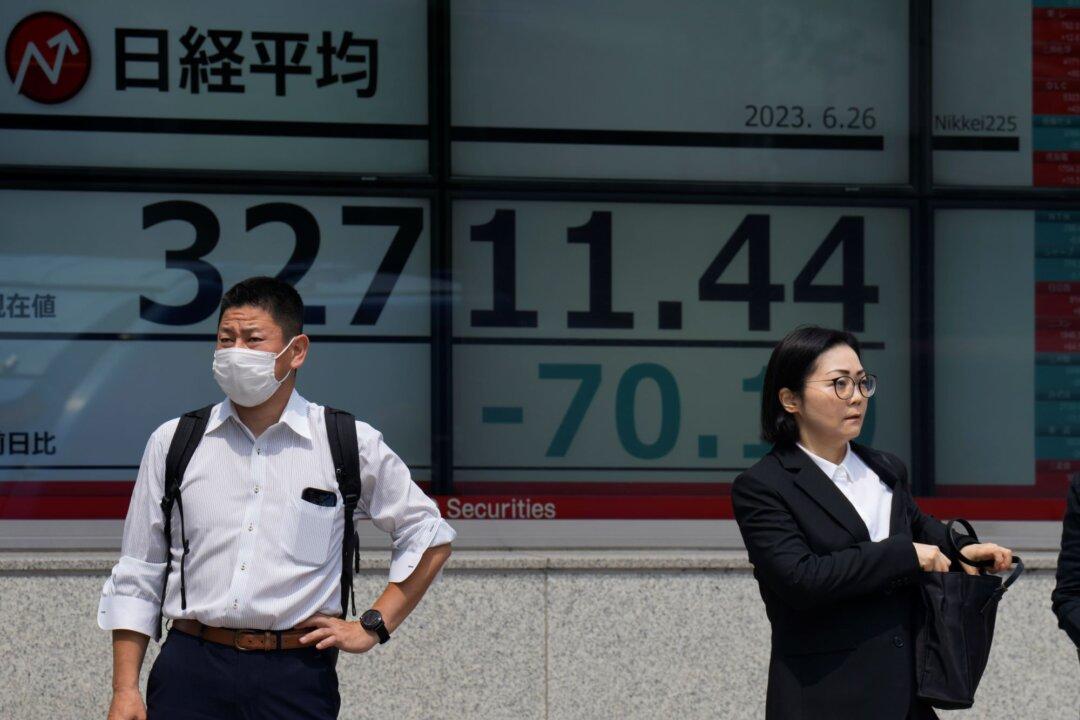TOKYO—Global shares mostly fell Monday after a short-lived armed rebellion in Russia added to uncertainties over the war in Ukraine.
France’s CAC 40 dipped 0.4 percent in early trading to 7,135.23. Germany’s DAX slipped 0.2 percent to 15,797.27. Britain’s FTSE 100 fell 0.8 percent to 7,403.10. The futures for the Dow Jones Industrial Average and S&P 500 futures were down 0.2 percent.





